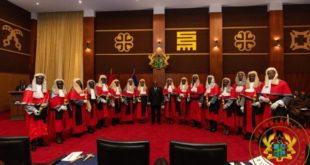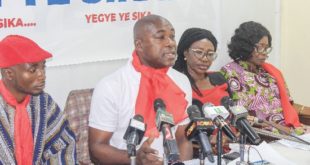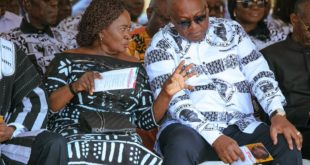Dr. Mahamudu Bawumia, vice president, is confident that Ghana will this time around come out stronger after requesting assistance from the International Monetary Fund (IMF).
Ghana has already started talking to the IMF about providing balance-of-payments help as part of a larger initiative to hasten Ghana’s recovery from the COVID-19 pandemic and, more recently, the Russia-Ukraine crises.
On Thursday, July 14, 2022, Vice President Bawumia noted during the ceremonial opening of the Accra Business School’s IT Programs that recovering for Ghana would require a lot of effort and difficult choices.
Bawumia outlines the top four justifications for Ghana’s request for an IMF bailout.
He said that with improved fiscal restraint and structural changes to restore debt sustainability and growth, the country will do better than it had under the previous 17 IMF programs.
But it will demand tough labor and challenging choices.
This introduction of three new programs by the Accra Business School in partnership with the South East Technical University is something we can all take great pride in and enjoy.
“It’s a day when the neglect of many decades comes to an eventual end. It’s a beginning to lay the foundations of strengthened institutions to take up the challenges of time with an able and apt workforce.
“It’s a day when a new beginning is being made by forging a common alliance between the government and academic leaderships to protect, preserve and promote above all, democracy via digitalisation.”
Dr. Bawumia stressed that the twin external factors of covid-19 and the war in Ukraine, which he said, has also led many countries to the IMF for support, following rising cost of living and inability to sustain debt levels, has also exposed the need for Ghana to put in place measures to be more fiscal-discipline.
“The major lesson of the last two years is that we have to be more self-reliant as a country,” Dr. Bawumia said.
“It is important that we take decisions that will inure to the benefit of the country regardless of whether we are going to the IMF for a program or not.”
“The immediate task is to restore fiscal and debt sustainability – through revenue and expenditure measures and structural reforms. Non-concessional borrowing should be curtailed to enhance debt sustainability,” the vice-president added.
Dr. Bawumia also observed that successive governments have failed to achieve long-term economic stability after each of the past 17 IMF programmes due to the lack of systems to ensure sustainable stability, hence the government’s focus on ensuring such systems are put in place.
“I should note that Ghana has gone to the IMF for a program 17 times since independence and after each IMF program, the underlying system and structure of the economy remained the same,” Dr. Bawumia said.
“It is important to note that the focus of economic management by successive governments since independence in Ghana has been on crisis management as a result of factors such as the collapse in commodity prices, increase in oil prices, debt unsustainability, political instability, macroeconomic instability, etc. Governments, have by and large, not focused on building systems and institutions that underpin economic activities in a modern economy.”
According to Dr. Bawumia, these contemporary systems for sustainable economic development include “the systems that will reduce bribery and corruption, the systems that will improve the efficiency of public service delivery, the systems that will increase domestic revenue mobilization, and the systems that will generally make life easier for Ghanaians.”
The vice president stated that since 2017, the government has concentrated on constructing these systems, which include a biometric national identification card, operational digital property address system, aggressive financial inclusion program, digitization of government services, and many others. According to the vice president, these systems are improving services and facilitating access, reducing corruption, and bolstering domestic revenue mobilization.
In order to secure a durable economic recovery following the most recent, 17th IMF programme, he advocated for a renewed focus on developing and strengthening these mechanisms together with improved budgetary discipline.
Source: Ghanatodayonline.com
 Ghanatodayonline.com News, Politics, Health, Education & More
Ghanatodayonline.com News, Politics, Health, Education & More



